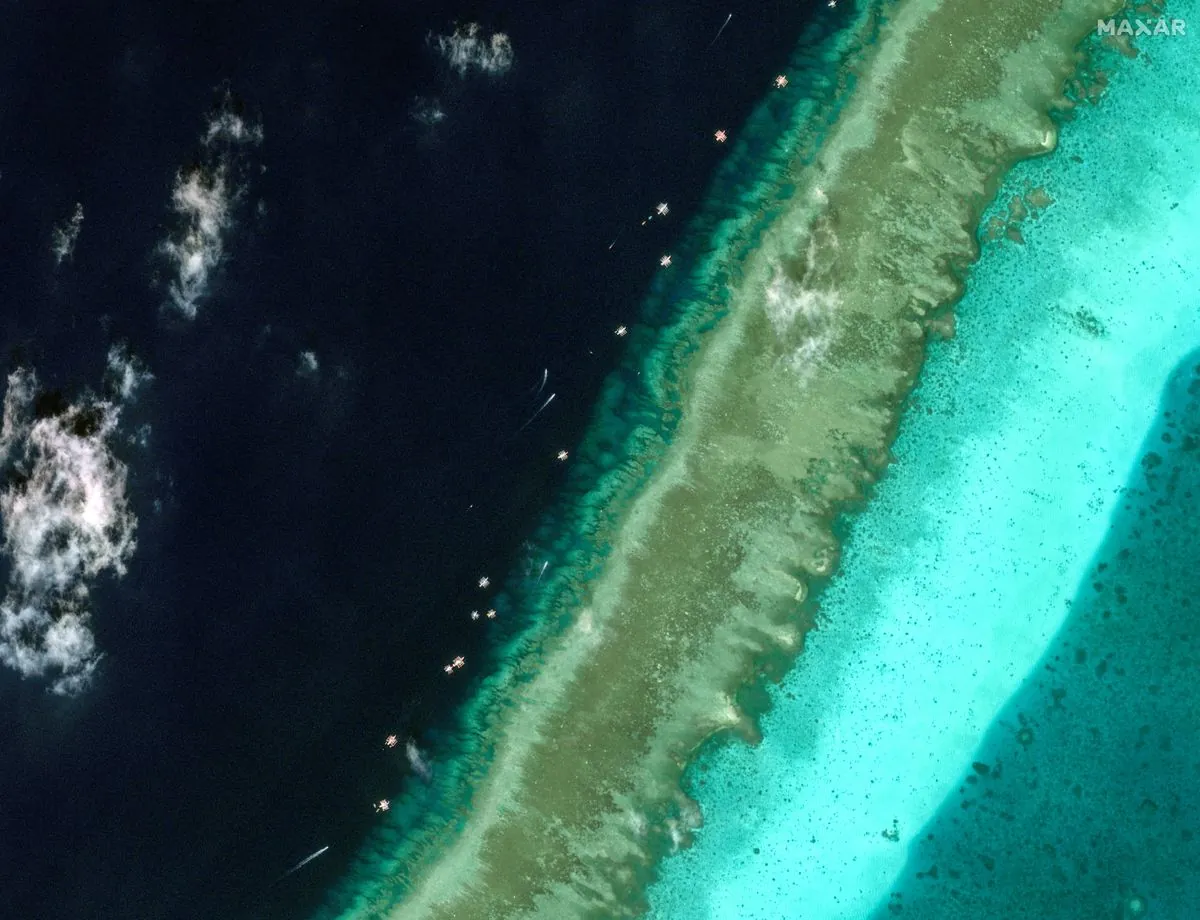China Urges Philippines to Reconsider Relations Amid South China Sea Tensions
China calls for dialogue with the Philippines as tensions rise in the South China Sea. Recent clashes and territorial disputes overshadow efforts to rebuild trust between the two nations.

In a recent commentary published by the People's Daily, the official newspaper of the Communist Party of China, Beijing has called on Manila to "seriously consider the future" of their bilateral relationship. The statement comes amidst escalating tensions in the South China Sea, a region of significant geopolitical and economic importance.
The South China Sea, covering an area of approximately 3.5 million square kilometers, has been a source of ongoing disputes between China and several Southeast Asian nations, including the Philippines. Recent incidents involving coast guard vessels from both countries have heightened concerns about the stability of the region.
In June 2024, a violent clash occurred between Chinese and Filipino coast guard ships, resulting in injuries to a Filipino sailor. This incident, along with others, has overshadowed efforts to improve communication and manage confrontations between the two nations.

The commentary, published under the pen name "Zhong Sheng" (Voice of China), emphasized the need for dialogue and consultation to resolve disputes. It stated, "China-Philippines relations stand at a crossroads, facing a choice of which way to go." The article urged Manila to work with Beijing to "push bilateral relations back on track."
The South China Sea's strategic importance cannot be overstated. It is a major shipping route, with over 50% of the world's merchant fleet tonnage passing through its waters annually. Additionally, the region is believed to contain significant oil and natural gas deposits, as well as rich fishing grounds. The sea is home to over 3,000 species of fish, contributing to its economic and ecological significance.
China's claims in the South China Sea, represented by the "nine-dash line" covering about 90% of the area, have been a source of contention. In 2016, the Permanent Court of Arbitration, established in 1899, ruled that China's sweeping claims had no legal basis. However, Beijing continues to reject this ruling.
The United States has also played a role in the regional dynamics. In June 2024, Washington reaffirmed its commitment to the Philippines' security following accusations by Manila that China was deliberately obstructing the resupply of Philippine troops stationed at the disputed Second Thomas Shoal, part of the Spratly Islands.
"The so-called 'humanitarian' problem at Sabina Shoal is due to an illegally stranded ship. The people aboard are absolutely allowed to leave."
This statement from the Chinese commentary highlights the differing perspectives on the situation and the challenges in resolving the ongoing disputes.
As tensions persist, it is crucial to consider the historical context of the region. The first recorded Chinese claim to the South China Sea dates back to the 2nd century BC, while the Philippines gained independence from the United States in 1946. The establishment of the Association of Southeast Asian Nations (ASEAN) in 1967 has provided a platform for regional cooperation, but territorial disputes remain a significant challenge.
The future of China-Philippines relations and the broader stability of the South China Sea region will depend on the ability of all parties to engage in constructive dialogue and adhere to international law, including the United Nations Convention on the Law of the Sea (UNCLOS) signed in 1982.


































